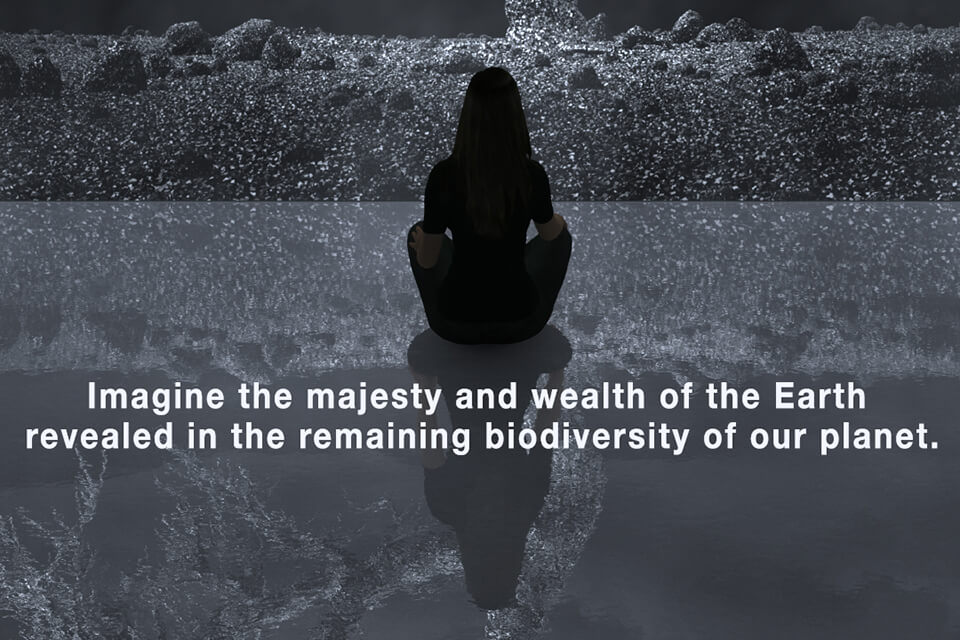Visual Arts Professor Kelly Richardson works with UN
If you could imagine a future for our planet’s biodiversity, what would it be? UVic Visual Arts professor Kelly Richardson has been invited by the UN Convention on Biological Diversity to do just that as part of a global collaborative artwork to celebrate the world’s biodiversity and urge for its protection.
Imagine compassion for nature
“The opportunity to imagine our potential futures on this platform is substantial in terms of audience reach,” says Richardson. “The idea is to awaken compassion for nature and imagine our different potential futures using images of my work—from the unthinkable to a radically different future should priorities take a dramatic turn.”
Richardson is one of six international artists and scientists invited to participate in the global Instagram movement @withnature2020 on June 25.
Her dramatic images will be paired with messages intended to encourage reflection on our relationship with biodiversity: “Imagine if we valued the species which went extinct on Earth today, as though it was found on Mars. Imagine the radically different futures that will bring.”
Fusing art and science
We have a limited window of time to act to change our collective futures. If people can visualise potential outcomes from insufficient address of our planet’s significant issues around biodiversity loss and climate change, it may result in an appreciation for what remains and a dramatic shift in priorities to protect it.
—Kelly Richardson, visual arts professor
An internationally acclaimed artist, Richardson creates video installations of rich and complex landscapes that have been manipulated using CGI, animation and sound. Her practice offers imaginative views and constructions of the future plausible enough to prompt careful consideration of the present.
Underpinning her research is a critical and often collaborative engagement with scientists, philosophers and writers whose work engages with issues related to climate change.
